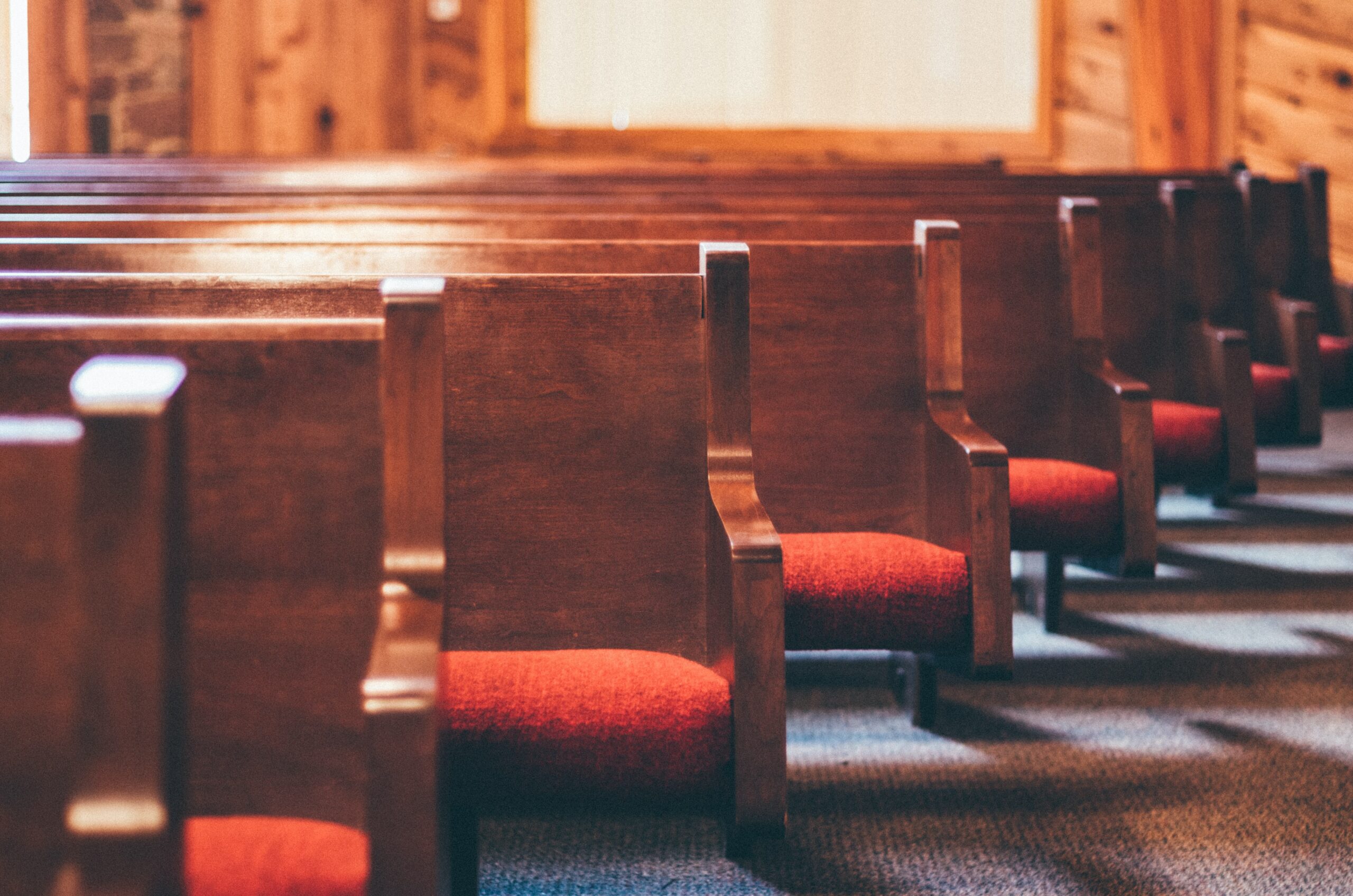There is a potential problem and a potential promise that comes with every worship service. The problem is the danger of dead formality. We all know what it is like to sit through ritual that feels as mechanistic and devoid of meaning as making a cash deposit at an ATM. The sermon ends and instead of saying “amen” (so be it) the congregation ought to say “ichabod” (the glory has departed). A sense of God’s presence is conspicuously absent from a lot of worship services and prayer meetings.
Yet, each time believers are gathered together there is a lingering promise. An old hymn says, “sometimes a light surprises the Christian while he sings”. This is indeed the case. God is free to show up in a special way at any time, at any place. True revivals do not start by clever orchestration. They begin by an unexpected dispensation of grace that is both unintended and uncontrollable.
Now, what does it look like to experience God in the context of gathered singing or prayer? Here Psalm 63 can be of service. In this Psalm we see several genuine marks of a heart that has come in contact with the presence of the living God.
1 – “O God” Becomes “My God”
The first words of the Psalm are “O God, you are my God”. Honestly, the Psalm could stop right there and still be an amazing piece of devotional literature. There is nothing more astounding than the truth that the only true God, which is to say the superlative power upholding all things, is willing to have the personal pronoun “my” attached to His being. God is not embarrassed to be seen in public with us. In fact, the opposite is true. He wants to be seen holding our hands.
This thought of God being covenantally bound to us (which is the full meaning of “my”) ought to inspire great confidence as we step out into the world. One hymnwriter captures the point magnificently in saying, “Ponder anew/What the Almighty can do,/If with His love He befriend thee!”
2 – Physical Thirst becomes a Metaphor for Spiritual Thirst
The Psalmist says, “Earnestly I seek you; my soul thirsts for you; my flesh faints for you, as in a dry and weary land with no water” (vs. 1). Thirst doesn’t need much explanation. Thirst is not a “felt need” but a “real need”. Without water, we don’t just suffer; we die.
The Psalmist is fully aware that what is true of water is even more true of God. Human beings don’t just find satisfaction in God; we need God. Although being absent from God may be a slow death, it is death indeed. Hell is nothing other than detachment from the vital springs of living water.
But what is true negatively is also true positively. If we die without God, we come to life with God. This is the real testimony of the Psalm. When God shows up in worship, stuff happens: Dry and parched souls are watered and enlivened. People come to life like flowers in the spring.
When I was a child, I often walked into churches and wondered why everything felt dead. As I became a man, I realised that the problem was not the church, but my heart. God was present; the aridness did not come from without, but within. Slowly, as I learned what it meant to come to Jesus and drink of His every-flowing grace, my entire experience of church changed. Church shifted from feeling like a desert to being an oasis. Worship became an experience of gulping grace and bathing in love. The shift was transformational.
3 – You Catch Sight of Divine Power and Glory
It’s interesting to imagine what it would have meant to see and behold the glory of God in an Old Testament context. Throughout the Old Testament, God’s glory is always veiled. Light may shine through the cloud or reflect off the tabernacle, but more is unseen than seen. Even Moses was only privy to a quick peak at the “back” of God.
One of the incredible privileges of living on the other side of the incarnation is that we have visions of divine glory that exceed anything experienced by Elijah or Isaiah. The flesh of Jesus is a transparent veil through which the invisible glory of God shines. This is why Jesus tells us that to see Him is to see the Father (c.f. John 14:9).
This fact ought to change our experience of worship. Every time we hear the gospel preached we are being offered an opportunity to behold the power and glory of the Almighty. As we gaze upon the cross, we are gazing upon God. Isaac Watts captured this point in the unforgettable lines: “But in the grace that rescued man/His brightest form of glory shines; Here on the cross ‘tis fairest drawn/In precious blood and crimson lines”.
4 – You Get a Taste of Eternal Life
Consider two questions. First, what is the best thing that a human being can experience in this world? The answer is loving relationships. Second, how much greater is the love of God than the love of human beings? The answer is infinitely so.
Now if you put these two answers together you reach a remarkable truth: the best thing that could ever be experienced in this universe – or any other universe that might exist – is the love of God. David knew this personally, which is why he wrote, “Because your love is better than life, my lips will praise you” (vs. 3).
When God meets us in worship, we get a taste of the sweetness of His love. The end result of this experience is twofold. First, we can’t stop thinking about him. We find ourselves meditating on him on our beds and in the middle of the night (c.f. vs. 6). Second, we find our souls “clinging” to him (vs. 8). The entire solar system of our affections – delight, desire, sorrow, grief, fear, and hope – begin to revolve around him like planets around a sun.
5 – You Discover Self-Fulfilment through Praise
Israel had a unique anthropology. If you asked Aristotle what makes a human being unique and special, his answer would be rational thought. If you asked David what makes a human being unique and special, his answer would be praise. Our deep design, and thus our deep fulfilment, comes not through mere thinking, but through rejoicing. It is when the mind and heart are engaged in the act of worship that we find our most authentic freedom.
David here is truly a model for us. He says, “So I will bless you as long as I live”. One could reverse the statement and it would be equally true: “So I will live as long as I bless you”. For Christians, to live is to worship and to worship is to live. This is the wonderful truth that we discover when God’s presence shows up in a special way on a Sunday morning or a Wednesday night.
By Joe Barnard



